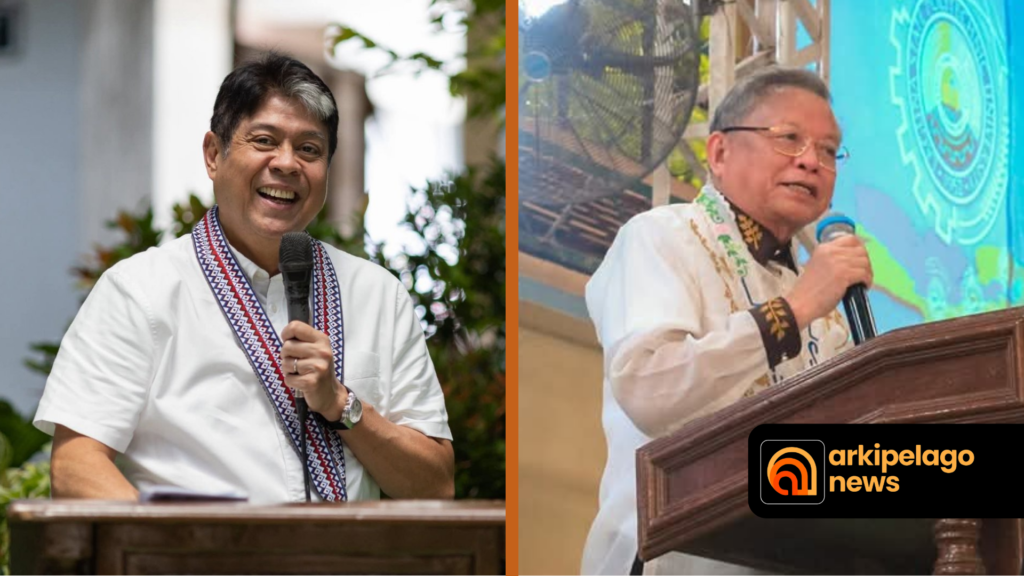Philconsa, Kiko Pangilinan urge Supreme Court to reconsider ruling on Sara Duterte impeachment
Paulo Gaborni August 5, 2025 at 03:19 AM
MANILA — The Philippine Constitution Association (Philconsa) and Senator Francis “Kiko” Pangilinan have called on the Supreme Court (SC) to reconsider its controversial ruling that declared the impeachment complaint against Vice President Sara Duterte unconstitutional. The calls come amid growing legal and constitutional concern over the high court’s perceived overreach into the powers of Congress.
Philconsa, chaired by former Chief Justice Reynato Puno, issued a strongly worded statement over the weekend warning that the Supreme Court’s July 25 ruling threatens to “tilt the balance of power” between co-equal branches of government. The group questioned the constitutionality of seven new procedural rules the SC imposed on the House of Representatives for future impeachment cases.
Judiciary Should Be Umpire, Not a Player
Philconsa warned that the Supreme Court’s July 25 decision effectively shifts the constitutional balance of power by allowing the Court to assess the sufficiency of evidence and the timing of the House’s decision-making process. Under the ruling, any future impeachment complaint must be accompanied by adequate evidence and be given a “reasonable time” for evaluation by House members — criteria that, according to Puno, could be invoked by impeached officials to challenge proceedings in the SC itself.
“The new rules gave the Supreme Court powers that can deprive the House of its exclusive power to initiate all cases of impeachment,” Puno said, citing Article XI, Section 3 of the 1987 Constitution.
“These requirements gave the Court the power to determine the sufficiency of evidence and the reasonableness of time granted to lawmakers—powers never intended for it by the Constitution,” Puno said. “It runs counter to the advice that in interpreting the Constitution, justices should act as umpires, not pitchers or batters.”
Philconsa added that the SC’s self-ascribed authority could become “anomalous” in scenarios where a sitting justice becomes the subject of an impeachment case.
Political Questions, Judicial Overreach
Philconsa also reiterated the doctrine of the “political issue principle,” emphasizing that the initiation of impeachment is a political act reserved for elected lawmakers. According to the group, Article XI, Section 8 of the Constitution gives Congress—not the judiciary—the authority to promulgate its own impeachment rules.
“The Court cannot minimalize this principle that prevents the Judiciary from exercising power that can overwhelm the other branches of the government,” Puno said. “It is the guardrail against the evil of undue judicialization of politics by the unelect.”
Philconsa also raised concern over the SC’s new requirement that due process be observed in the House stage of impeachment when one-third of members file a verified complaint. Puno argued that due process is appropriate only at the trial phase in the Senate, not during the initiation process in the House.
“In fine, the new rules written by the Court will render nugatory the exclusive power of the House to initiate all impeachment cases,” Puno said. “We beg the Court to revisit the constitutionality of the new rules it wrote for the House.”
Senator Pangilinan: A Constitutional Collision Course
Meanwhile, Senator Francis “Kiko” Pangilinan joined the chorus of concern, urging the Supreme Court to issue a status quo ante order and to hold oral arguments on the matter. His call followed a motion for reconsideration filed by the House of Representatives, through the Office of the Solicitor General, asking the Court to reverse its decision.
Pangilinan, a former chair of the Senate Committee on Justice and Human Rights, cited a proposal by retired Chief Justice Artemio Panganiban advocating for a judicial pause and open deliberation to avoid an institutional crisis.
“By doing so, all parties—the Senate, the House of Representatives, the Supreme Court, and the wider legal community—can take pause, step back, and prevent the nation from sliding into a spiraling abyss of a constitutional war of attrition, both in words and in deeds,” Pangilinan said.
He warned that unchecked conflict between branches of government could erode public trust and inflict “lasting harm” on the country’s democratic institutions.
Pangilinan also called on the Court to act on the motion for reconsideration “towards the path enunciated in its own ruling in the Civil Liberties Union v. Executive Secretary case”—a ruling that stressed the need to harmonize the constitutional prerogatives, powers, and duties of the Supreme Court, the House of Representatives, and the Senate.
📷 Kiko Pangilinan FB, Emmanuel M. Cabusao
